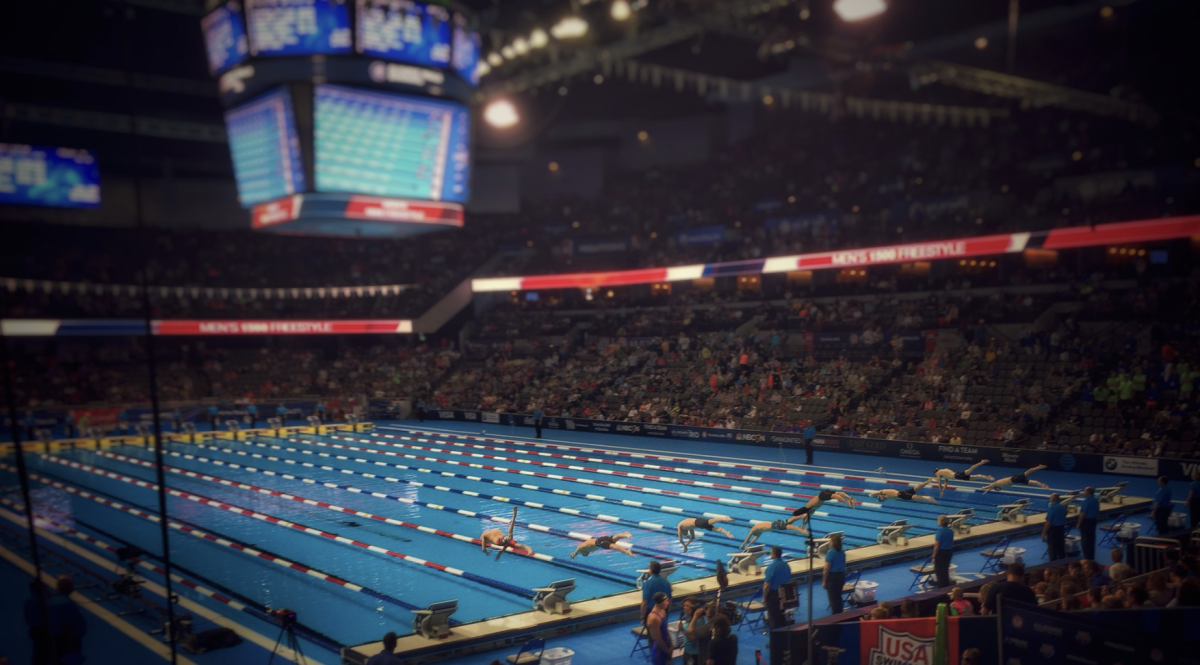Like any other Olympics, the 2024 Paris Olympic Games saw a myriad of athletic feats celebrated left and right by people of all nationalities. However, something extraordinary and unforeseen happened in the world of Olympic swimming; to say that the ground-breaking achievement was not well received by many would be an understatement.
For the first time in Olympic history, Team USA was defeated in the men’s 4×100-meter freestyle relay, and to the shock of many viewers, it was Team China who prevailed and took home the gold medal.
The achievement was fueled by the 19-year-old Pan Zhanle, Team China’s new swimming powerhouse, who broke his own 100-meter freestyle world record set earlier in the year.
Immediately after the historic win, Team China faced an unusual bombardment of cheating allegations, primarily from Western nations. Brett Hawke, former Australian Olympic swimmer turned coach, called Pan’s world-record win “not humanly possible,” which led to many comments both criticizing his accusations and defending his claims.
The U.S. went as far as to cut funding to the World Anti-Doping Agency (WADA), where there were complaints about WADA’s supposed failure to conduct an investigation and keep the Chinese swimmers in check. These actions reveal a larger narrative at play, highlighted in a statement by the WADA head of media relations, James Fitzgerald.
“When members of Congress and senators are inserting themselves into the largely technical world of anti-doping, it ceases to be about scientific and legal analysis, and it drifts into the political realm,” Fitzgerald said.
Politics inevitably make their way into large-scale international events like the Olympics. With geopolitical tensions between China and the U.S. on the rise, these games seem to be used by Western powers to create hostility against China by causing division within the anti-doping system.
Then comes the question: are these allegations truly justified?
The Chinese Olympic swim team faced excessive scrutiny in the months leading up to the games and was tested for the use of performance-enhancing drugs (PEDs) significantly more than any other team at the Olympics. A World Aquatics report shows that each of the 31 Chinese swimmers who competed in Paris were tested an average of 21 times since January 2024, compared to an average of six times for American swimmers.
One might assume that this extreme testing could have been justified by an alarming number of past doping cases. However, a closer look at the data comparing different countries’ percentages of doping violations out of the samples tested, China is found with the lowest percentage (0.2%) out of the most samples tested (19,228).
Before the Tokyo 2021 Olympics, 23 Chinese swimmers tested positive for the use of a PED heart medication trimetazidine (TMZ), and 11 of those swimmers were chosen for Paris. After the Paris announcement, U.S. media immediately turned to propagate the narrative of “China sends doping scandal swimmers,” and that the said swimmers tested positive before Tokyo 2021. However, further research will reveal that in an investigation by WADA, these swimmers were cleared to compete when it was found that the source of the drug was contamination in food the athletes consumed.
While questions continued following the 2021 Tokyo Olympics, there was no evidence of any violation that would contradict WADA’s findings. Nevertheless, the U.S. would go on to use this incident to score political points and pin the blame on WADA.
Aggression towards Chinese swimmers and athletes overall also manifested in the way Western swimmers treated their Chinese counterparts during the competitions. In a live broadcast after setting the new world record for men’s 100-meter freestyle, Pan pointed out rude behavior from Australian swimmer Kyle Chalmers and America’s Jack Alexy. Chalmers allegedly ignored Pan’s greeting, and Alexy splashed water on their coach during warmups.
“I felt that they looked down upon us,” Pan said, translated from Chinese.
These actions reveal that in addition to the political motives, much of the aggression towards the Chinese stems out of pure xenophobia and jealousy.
The Olympics are intended to foster unity and celebration among the diverse group of competing athletes and their global audience. It is an opportunity to put aside political tensions and racial differences to honor athletes based on their talent and grit. While some degree of this spirit was achieved in Paris, as with many Olympic Games, it fell short in more ways than it should have.


































































